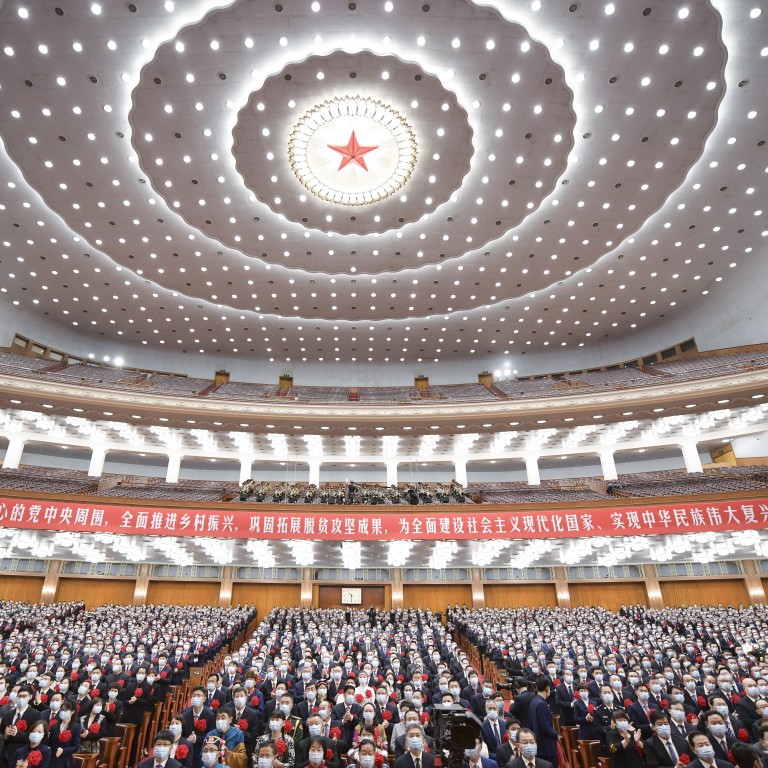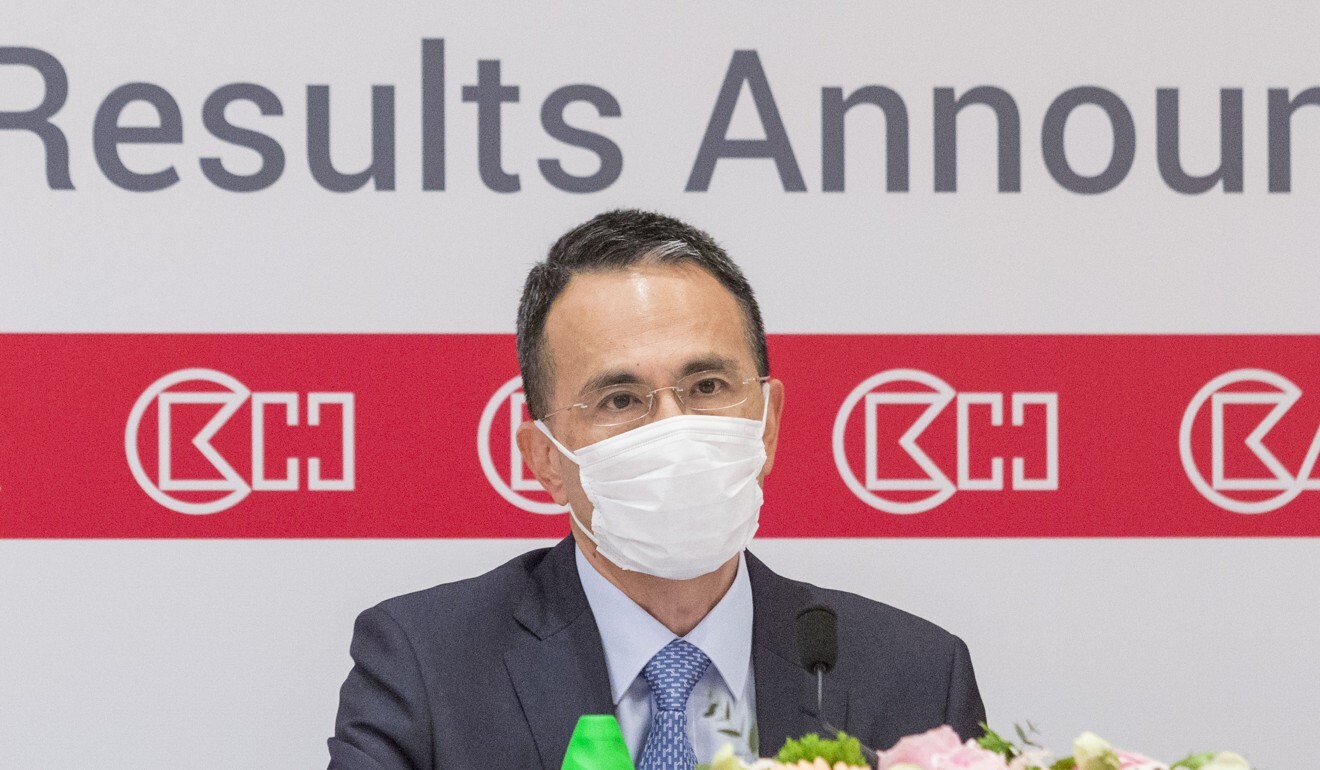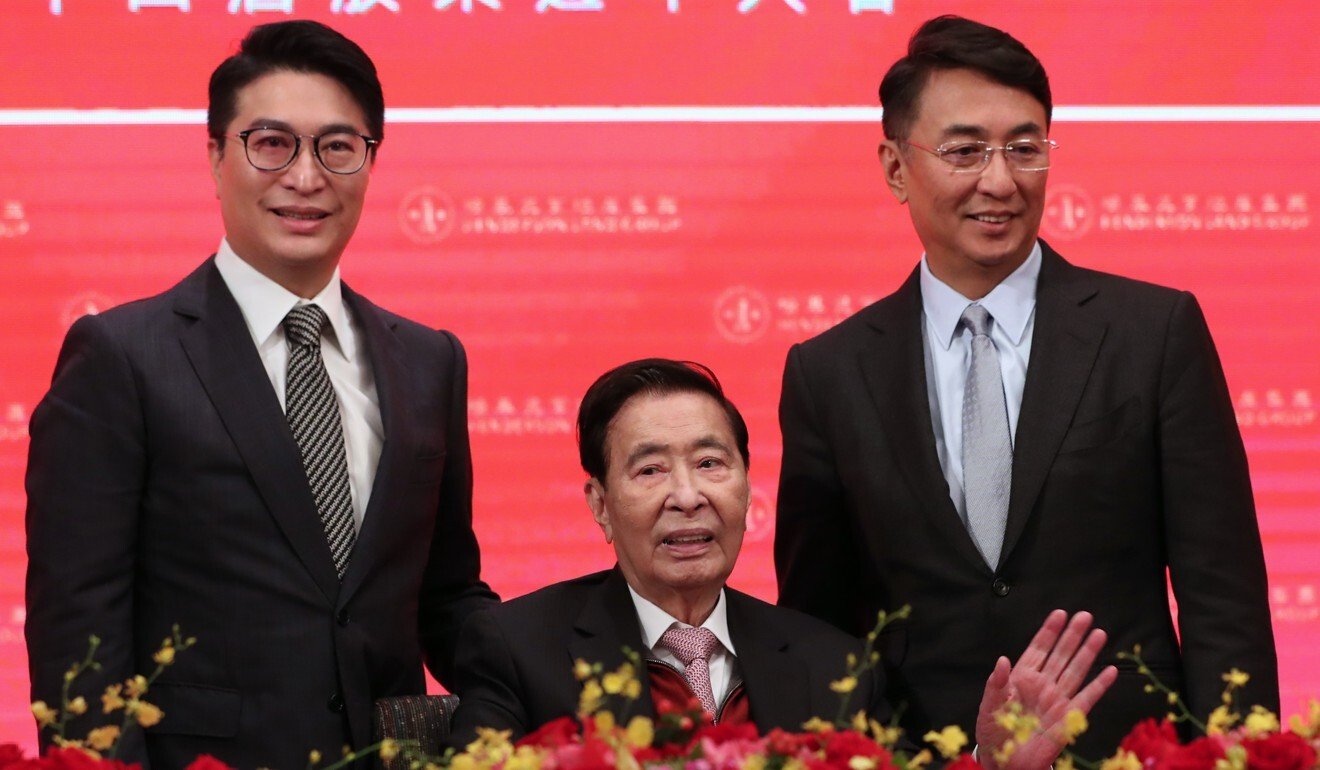
China’s richest entrepreneurs attending ‘two sessions’ have seen wealth grow 68 per cent on average last year, Hurun says
- Top billionaires at annual parliamentary meetings are worth more than Hong Kong’s 2020 GDP at current market prices
- Victor Li Tzar-kuoi of CK Holdings and Peter Lee Ka-kit of Henderson Land among top billionaires
The top richest entrepreneurs attending China’s annual parliamentary meetings this year have seen their fortunes swell by an average of 68 per cent over the past year, according to research company Hurun Report.
According to a list of top billionaires attending the “two sessions” it released on Friday, they are worth a combined US$391 billion – more than Hong Kong’s 2020 gross domestic product at about US$349 billion, at current market prices.
Two of the city’s property magnates – Victor Li Tzar-kuoi of CK Holdings and Peter Lee Ka-kit of Henderson Land – made the top 10. A total of four entrepreneurs on the list amassed their fortunes from property, based on January 15 valuations.
Since Thursday, more than 5,000 members of China’s political elite have been converging on Beijing for the “two sessions” or Lianghui, the annual gatherings of the Chinese People’s Political Consultative Conference (CPPCC) and the National People’s Congress (NPC).
Ma Huateng, also known as Pony Ma, founder and chief executive of Tencent Holdings, is the wealthiest entrepreneur to attend the two meetings this year. He is currently sitting on a fortune worth US$74 billion. Ma, who has been an NPC delegate since 2013, is also ranked by Hurun as the world’s 14th wealthiest billionaire.

“China’s entrepreneurs are booming. Today, there are officially 1,058 dollar billionaires living in China, up 259, ahead of the 696 in the US,” said Rupert Hoogewerf, Hurun Report’s chairman and chief researcher. “Beijing is officially the billionaire capital of the world for the sixth year running with 145 billionaires, whilst Shanghai overtook New York to second place, with 113 billionaires.”
Qin Yinglin, the chairman of Muyuan Foodstuff, is in second place with a net worth of US$41 billion, built on pig farming. In third spot is William Ding Lei of NetEase at US$38 billion, whose gaming empire has prospered from a surge in demand for entertainment during the pandemic.
CK Holdings’ Li, with a fortune of US$34 billion, and Henderson’s Lee, with a net worth of US$25 billion, come in at No. 4 and No. 9, respectively. Both are second-generation wealthy elites. Li is the son of “Superman” Li Ka-shing, the city’s wealthiest man, and was appointed chairman when his father retired in 2018. Lee took over from his father, Lee Shau-kee, who was briefly Hong Kong’s wealthiest man last year, and is Henderson Land’s co-chairman and managing director.

Mainland Chinese real estate moguls Yang Guoqiang of Country Garden and Xu Jiayin of Evergrande are in sixth and seventh place, with fortunes of US$33 billion and US$31 billion, respectively.
The duo, along with 13 other delegates who are property moguls, expected to be under fire because of their debt woes. Beijing has this year slapped its strictest rules yet on the 16 trillion yuan (US$2.5 trillion) real estate industry, hitting the country’s highly leveraged developers where they hurt most – their bank loans. The Chinese central bank’s much-vaunted “three red lines” – financial requirements that decide whether developers can borrow – have also kicked in to limit the banking system’s exposure to the property sector.

